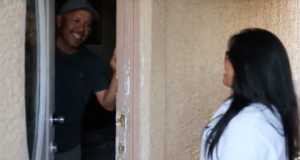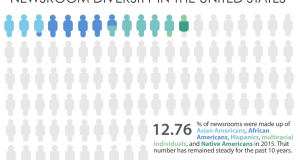Valerie Plesch heads to work inside the Associated Press building and takes the elevator to the 14th floor. Tucked away in a room along a back corridor is the New York bureau of Al Jazeera English.
Plesch, 33, has been the bureau’s production intern for the summer, after graduating from Columbia Journalism School in May.
“Since I didn’t have a lot of journalism experience before coming to graduate school,” she said, “I really needed to get newsroom experience – an internship.”
No academic credit. No hourly wages. Only a weekly stipend of $100 helps Plesch manage travel costs, but she still considers this opportunity an unpaid internship.
Plesch is one of many aspiring journalists who have interned without pay, an issue that has generated significant buzz across the country and in the journalism industry.
Earlier this year a federal judge ruled that Fox Searchlight Pictures violated minimum wage rules for not paying its production interns for the film “Black Swan.” Just this week, LeanIn.org, a nonprofit created by Facebook COO Sheryl Sandberg, announced it would start paying its interns, triggered in part by a post from an employee advertising the internship initially as unpaid.
News outlets often provide unpaid internships, but many offer academic credit in lieu of cash.
USA Today’s internship program requires its students to receive academic credit and offers a monthly travel stipend of at least $200. Internship coordinator Brent Jones said that while interns don’t get paid hourly, the paper offers a number of opportunities and resources that are difficult to put a price on.
“Our students get specialized conversations in their areas of interest with staffers,” Jones said. “We believe that there is a great value – the level of support, the recommendation letters, the mentoring relationships that are built through our program, the ongoing tracking that we do.”
Going forward, Plesch hopes to find work in broadcast production in the form of a full-time job. She said she does not want to pursue another unpaid internship, but she appreciates her experience and doesn’t want to dissuade other young journalists who might consider a similar path.
“If you think that’s going to help you, push you towards a full-time position, I would say, ‘Just do it,’ because it’s not forever,” she said. “You can get some great skills and experience.”
 VOICES Publishing from the AAJA National Convention
VOICES Publishing from the AAJA National Convention







